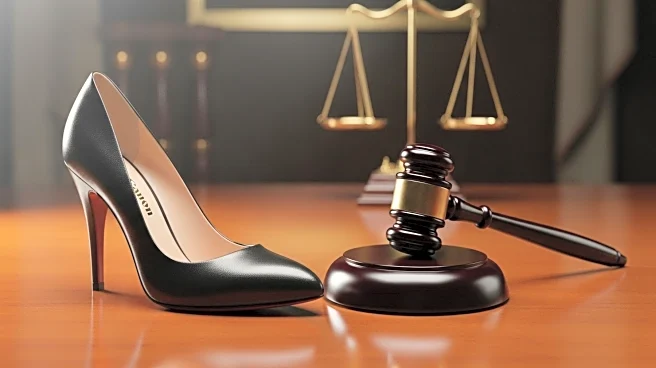What's Happening?
The Cour de cassation, France's highest court, has upheld significant penalties in a case involving counterfeit Christian Louboutin products. The court ordered the defendant to pay a €15,000 criminal fine, a €100,000 customs fine, and €120,000 in damages for selling counterfeit goods, including twelve pairs of shoes and 628 bags. This decision reaffirms the validity of Louboutin's red sole trademark, rejecting claims that the trademark is functional and lacks distinctiveness. The ruling also emphasizes the severity with which French courts treat counterfeiting, even when the quantity of counterfeit goods is relatively small. The court's decision highlights the importance of protecting intellectual property rights and the serious consequences for those involved in counterfeiting activities.
Why It's Important?
This ruling is significant for the luxury goods industry, which is increasingly targeted by counterfeiters producing high-quality 'superfakes.' The decision underscores the commitment of French courts to protect intellectual property rights and deter counterfeiting through severe penalties. For luxury brands, this offers reassurance that their trademarks are strongly defended under French law. The ruling also serves as a warning to counterfeiters that even limited involvement in the trade can result in substantial financial and criminal consequences. As the market for counterfeit goods grows in sophistication, the court's insistence on heavy sanctions aims to curb the proliferation of fake luxury products.
What's Next?
The case has been sent back to the appellate court to reassess the damages with proper justification, as the Cour de cassation found the previous assessment lacked explanation. This reassessment will focus on economic harm, including lost profits and illicit gains, or a lump-sum indemnity higher than hypothetical royalties. The outcome of this reassessment could further clarify the standards for calculating damages in counterfeiting cases, potentially influencing future legal strategies for both plaintiffs and defendants in similar cases.
Beyond the Headlines
The ruling reflects broader trends in the global counterfeit market, where the demand for high-quality replicas is rising. This shift from street markets to aspirational luxury consumers poses new challenges for brands and legal systems. The decision by the Cour de cassation may influence other jurisdictions to adopt similar stringent measures against counterfeiting, reinforcing the global fight against intellectual property violations.











